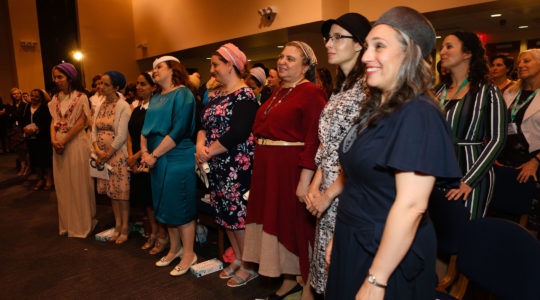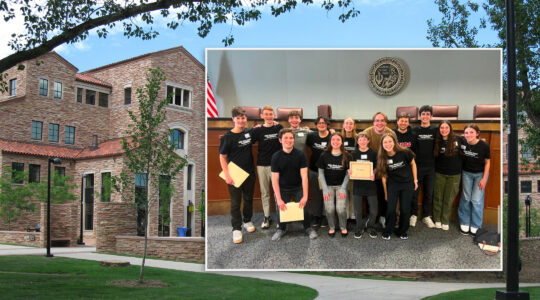Legacy organizations in the Jewish organizational world are often spoken of as being old, stale, and incapable of change. They can seem like slower-moving institutions especially when juxtaposed with new startup organizations that undertake different approaches to reaching and engaging people.
Apparently I’m now the CEO of one of these legacy institutions, The Jewish Education Project; even I can admit sometimes it takes a while for us to move from strategy, to planning, to implementing one of our numerous educator professional development programs in Jewish education.
That said, if it wasn’t already clear, these last few weeks remind all of us why community-wide institutions remain the most invaluable backbone for communities like ours.
Within 24 hours of the first outbreak of coronavirus in a New York school, over 200 people joined The Jewish Education Project’s webinar about vigilance and care in these challenging times. Two days later another 200 educators joined our second such webinar and that same day pages and pages of resources went online offering resources and support to Jewish educators nation-wide (a third webinar will be held Thursday, March 12).
We also are launching a Help Desk to serve educators who are in the process of moving their learning online. The unprecedented concerns about coronavirus are a reminder that what we do to support Jewish educators can take many shapes and forms. Moreover, unfortunately, none of this work is new to us. We mastered our ability to be nimble, to be out there, and to respond immediately to tragedies in the days after Parkland and Pittsburgh.
Educators trust The Jewish Education Project because we have served them and their predecessors for decades, beginning in 1910 with what was then known as the Bureau of Education, later the Board of Jewish Education of Greater NY, and until 2010 BJENY-SAJES. Our work is predicated on the relationships we develop with the people we serve in the field, the robustness of the 35 networks of educators servicing over 400 educators and the quality of professional learning experiences we provide to over 10,000 educators every year.
This display of timely action comes as we also prepare to announce one of the largest educational initiatives ever embarked upon by the Jewish community. In a few weeks, we will share details about this initiative and the funders who turn to this legacy institution implement programmatic excellence on such a large scale.
It’s not an exaggeration to say that this organization could have gone out of business a few times in the last century. But with a core partner in UJA Federation of NY, The Jewish Education Project has always managed to re-invent itself, and now thrive, when the changing environment demands for us to continually adapt, to become even more valuable and to prove our worth in the communal landscape.
So perhaps it’s time for us to lay to rest the notion of legacy institutions being anachronistic. Even more so, perhaps now is precisely the right time to double down on those long-trusted organizations in your community with a track record of delivering when they are invariably called to do so. The importance of having a steady organization with a strong team and resources in place to respond during a community’s most pressing hour doesn’t always go noticed, until it’s needed. It is those moments—which we find ourselves in right now—that are critical reminders of what helps make our community strong and able to carry on under immense challenges.
David Bryfman is CEO of The Jewish Education Project.
The New York Jewish Week brings you the stories behind the headlines, keeping you connected to Jewish life in New York. Help sustain the reporting you trust by donating today.




